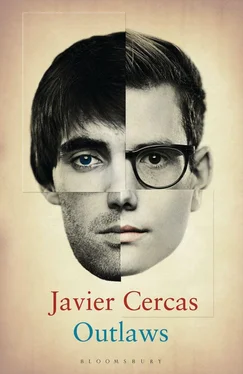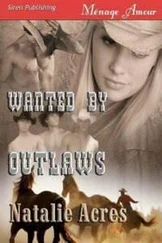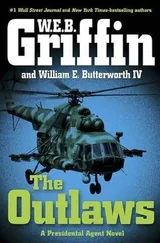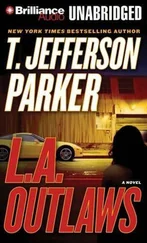‘The end of Zarco’s problems and the end of your problems with Zarco.’
‘Sure: at least I would have carried out the job of getting him his freedom back. In any case, as well as a farce Zarco and María’s marriage turned out to be quite the media event. It was held at the Gerona courthouse. Tere was the maid of honour and I was the best man. During the ceremony we could barely exchange any words other than formalities and practicalities, and afterwards not even that: a crowd of photographers was waiting outside who bombarded Zarco with flashes as he walked down the building’s steps carrying María in his arms. There was no wedding reception or celebration of any kind and, before I knew it, Tere had left. Over the following days the image of the bride coming out of the courthouse in the bridegroom’s arms monopolized the front pages of the newspapers and magazines, and the television stations were lavish in their attention on the news, magazine and gossip programmes that followed the newlyweds on their honeymoon in a hotel on the Costa del Sol, paid for by an Andalusian builder who had often proclaimed his juvenile admiration for Zarco to the press and in his main office had a portrait of Zarco hanging next to one of Marlon Brando as the Godfather.
‘After the commotion of the wedding and honeymoon, everything went back to normal for Zarco. A few weeks later, towards the middle of October, Correctional Institutions issued him his third-stage parole. This entailed two important changes for Zarco: on the one hand he no longer had to sleep in a cell and moved to a building adjacent to the yard, where he and other inmates at the same stage of incarceration had their own individual apartments with a kitchen and bathroom; on the other hand, from that moment on Zarco lived his own life outside of prison, which he left every morning at eight and where he had to return each evening at nine. By then I had got him a contract to work at a carton factory in Vidreres, not far from the city, thanks to a businessman who years earlier I’d exculpated from a fraud conviction, so theoretically, Zarco spent most of his day in the carton factory, which he went to and from by bus for eight-hour work days: from nine in the morning until six in the evening, with an hour lunch break; from six until he had to go back inside at night, Zarco was free.
‘That was his life from then on. When he embarked on it we had to give up our conversations in the interview room, we stopped seeing each other and I tried to wash my hands of what he was doing or not doing. For a time I thought the story was over, or was coming to an end, and that I’d only find out what Zarco was up to again from the press and when the various stages of his parole expired and I had to intervene to settle the final routines. Or maybe through Tere. Because, although she and I were still not seeing each other and, to spare myself futile brush-offs, I’d even stopped phoning her, now Tere called me. She called me at the office, once or twice a week, to chat for a while. These conversations weren’t as cold and utilitarian as those that followed our peaceable split, when it was still me who called her at home, but they were very brief, fairly trivial, as far as I recall we never mentioned the night in La Creueta or the uncomfortable things Zarco said there, or even the limbo that Tere had left our relationship frozen in; but, perhaps for that reason, I always hung up the phone convinced that the wait was about to end happily. Why did Tere keep phoning me? Whatever her reasons, it was in those conversations that she sometimes mentioned Zarco, always in a superficial way and sort of in passing, always to make some comment or give me some bit of news that I never knew where she got, nor did I want to find out.
‘All this lasted a short time. I soon understood that the story was not over, nor was it on the verge of being over, and soon it was me who was giving Tere news of Zarco, and not vice versa. One evening, two or three months after he’d started his part-time free-man’s life, Zarco showed up unannounced at my office. It was seven or seven-thirty and he was coming from Vidreres; he looked good, he’d lost a bit of weight, was dressed like a person and not like a perpetual convict: corduroy trousers, red sweater and a leather jacket. His presence agitated the whole firm: it was the first time he’d been there and everybody dropped whatever they were working on to see him, say hello, congratulate and welcome him. He smiled and looked happy and joked non-stop with my partners and the secretaries and the rest of the staff until, after a few minutes, he suggested we go out for a drink. I agreed with pleasure. I took him to the Royal and, although the clientele recognized him and were watching us and whispering to each other, they left us alone to talk and drink at the bar for a while. He told me about his new life; we talked about his job, the people he worked with, and especially about his boss, whom he praised to the skies and about whom I told a couple of anecdotes. My impression was that he was at ease with the new state of things, much more at least than with the old one. Before nine I gave him a lift back to the prison.
‘Zarco’s appearance at my office turned into a habit over the following months. At least a couple of times a week he’d show up there at seven or seven-thirty and we’d go and finish off the work day with a drink. At first those visits cheered me up, I enjoyed Zarco’s company and conversation, I felt proud that people saw me with him at the bar at the Royal or walking along Jaume I or under the arcades of Sant Agustí: he was Zarco — hence the pride — but also — and hence even greater pride — he was a free and reformed man, and his reform and freedom were a triumph that was in part down to me. That was when, perhaps thanks to the optimism Zarco seemed to be radiating, the two of us began to share something resembling closeness; and that was when an event occurred that I’m going to tell you about on the condition that it not appear in the book.’
‘I repeat that you can read the manuscript before I submit it to the publisher and I’ll cut anything you don’t like.’
‘Yeah, I know: I just wanted to hear you say it again. Now listen to my story. It’s about Batista. Do you remember him?’
‘Sure: your high-school bully.’
‘Exactly. I’d lost track of most of my friends from Caterina Albert a long time ago, although once in a while I crossed paths with one of them in the street and I knew that they all still lived in the city or at the very least in the province, except for Canales, who was a forestry specialist and lived in a village in Ávila, and Matías, who’d been working in Brussels for many years, as a bureaucrat in the European Parliament. Batista was a case apart. His track had been easier to follow as he’d turned into a relatively popular guy, at least in Gerona, and his story was one of those stories of individual success that newspapers love and that seem to proliferate in times of limitless prosperity like that one. I think I already told you that Batista was from a rich family with deep roots in the city; I must have also told you that his father was for years my father’s boss, he’d been chairman of the county council: in fact, he was the last council chair of the Franco era. But, with the arrival of democracy, things began to go less well for the family, and a few years later Batista’s father died leaving his family ruined or what a family like that considered ruined. The thing is that Batista, who by then would have been in his twenties, took charge of a small pig farm that had belonged to one of his grandfathers, in Monells, transformed the small pig farm into a larger pig farm, the larger farm into a small sausage factory, the small factory into a large factory and finally ended up transforming himself into one of the main sausage manufacturers in Catalonia, as well as a model young entrepreneur for the Catalan nationalists in power, which transformed the ferocious Españolista of my adolescence into a ferocious Catalanista (and the Narciso of back then into Narcís). That’s what had become of Batista over those twenty or twenty-odd years. And one evening, while I was waiting for Zarco at the bar of the Royal — sometimes we met there — I saw a photo of him in a newspaper and, when Zarco arrived at my side, the first thing that occurred to me was to tell him, point blank: I bet you don’t know why I joined your gang, why I went to La Font each afternoon, do you?
Читать дальше












